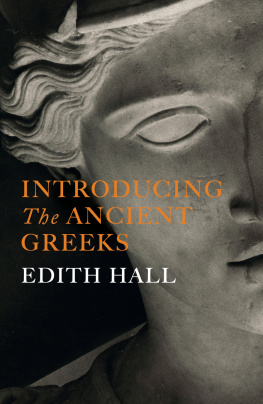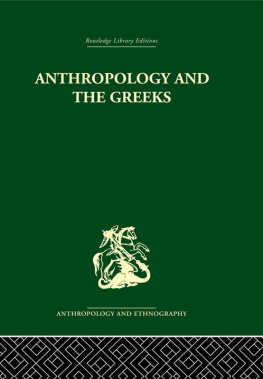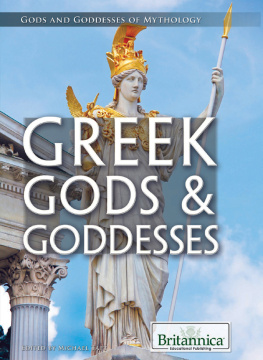
WANDERING GREEKS
WANDERING GREEKS

The Ancient Greek Diaspora from the Age of Homer to the Death of Alexander the Great
Robert Garland
Princeton University Press
Princeton and Oxford
Copyright 2014 by Princeton University Press
Published by Princeton University Press, 41 William Street, Princeton, New Jersey 08540
In the United Kingdom: Princeton University Press, 6 Oxford Street, Woodstock, Oxfordshire OX20 1TW
press.princeton.edu
Coin photography Andy Daddio. Jacket design by Karl Spurzem.
All Rights Reserved
Library of Congress Cataloging-in-Publication Data
Garland, Robert, 1947
Wandering Greeks : the ancient Greek diaspora from the age of Homer to the death of Alexander the Great / Robert Garland.
pages cm
Summary: Most classical authors and modern historians depict the ancient Greek world as essentially stable and even static, once the so-called colonization movement came to an end. But Robert Garland argues that the Greeks were highly mobile, that their movement was essential to the survival, success, and sheer sustainability of their society, and that this wandering became a defining characteristic of their culture. Addressing a neglected but essential subject, Wandering Greeks focuses on the diaspora of tens of thousands of people between about 700 and 325 BCE, demonstrating the degree to which Greeks were liable to be forced to leave their homes due to political upheaval, oppression, poverty, warfare, or simply a desire to better themselves. Attempting to enter into the mind-set of these wanderers, the book provides an insightful and sympathetic account of what it meant for ancient Greeks to part from everyone and everything they held dear, to start a new life elsewhereor even to become homeless, living on the open road or on the high seas with no end to their journey in sight. Each chapter identifies a specific kind of wanderer, including the overseas settler, the deportee, the evacuee, the asylum-seeker, the fugitive, the economic migrant, and the itinerant, and the book also addresses repatriation and the idea of the portable polis. The result is a vivid and unique portrait of ancient Greece as a culture of displaced personsProvided by publisher.
Includes bibliographical references and index.
ISBN 978-0-691-16105-1 (hardback)
1. GreeksMigrationsHistoryTo 1500. 2. GreeceSocial conditionsTo 146 B.C. 3. GreeceCivilizationTo 146 B.C. I. Title.
DF222.2.G37 2014
938dc23
2013034456
British Library Cataloging-in-Publication Data is available
This book has been composed in Sabon Next LT Pro and Ideal Sans
Printed on acid-free paper.
Printed in the United States of America
10 9 8 7 6 5 4 3 2 1
for Paul with lasting affection
Earth is common to all
HOM. IL. 15.193
CONTENTS
ILLUSTRATIONS
All coins are reproduced with kind permission of an anonymous collector.
MAPS
PREFACE
To put things in a modern perspective: there are 42.5 million displaced persons in the world today. More people were displaced in 2012 than at any other time during the past decade. There are 12 million refugees, 3.2 million of whom are living in Africa. According to the United Nations estimate, Every year, more than 5 million people cross international borders to go and live in a developed country, while the number of people who move to a developing nation or within their country is much greater (Human Development Report 2009, 9). Some 2.5 million people are being trafficked around the world. There are a million asylum-seekers, 80 percent of them housed in developing states. They comprise the tortured, political dissidents, the starving poor, and oppressed religious and ethic minorities. It has only been over the past century that the international community has attempted to regulate migration and to define those who should be accorded the special title of refugees. An important step was the establishment in 1951 of the Office of the United Nations High Commissioner for Refugees, initially intended to address the refugee problems consequent upon World War II.
In the ancient world, by contrast, displaced persons werent even a statistic. Though a few migrant groups caught the headlines, often due to the Odyssean circuitousness of their wanderings, the majority disappeared without trace once they had severed ties with their homeland. Citing the numerous accounts of Greek heroes being driven into exile as the result of murder, jealousy, and other exigencies, Gilbert Murray (1934, 207) perceptively observed, All Hellas was anastatos, driven by [sic] its home [by the] constant war paths and uprootings of peoples. This, as I shall seek to demonstrate, was no less true of Greece in It is also the case that scholars have largely overlooked the scale of the humanitarian crises that regularly occurred consequent upon war, famine, and political upheavalnot that humanitarian crises that occurred thousands of years ago could be expected to stir much passion today. Many Greeks found themselves displaced and on the move, condemned to live out the rest of their lives in moldy shacks and frosty tents. This said, our sources tell us very little about refugees in particular and not much about migrants in general. Their existence, though widespread at all periods of history, receives but cursory mention and then only when it happens to alter the political landscape.
It has only been relatively recently that scholars have become interested in migrants, refugees, Gastarbeiter, asylum-seekers, and the urban homeless. Over the past twenty-five years, however, migration studies has become a burgeoning field of inquiry that incorporates a wide range of disciplines including demography, economics, geography, history, sociology, anthropology, psychology, and cultural studies. Those who work in migration studies are concerned not only with process but also with the personal experiences of migrants and refugees. Much of its focus, as well as its theoretical underpinning, however, lies outside the scope of the present investigation. Questions such as, What is the desired relationship between refugees and asylum-seekers on the one hand, and human rights and domestic law on the other? How should one weigh the right of the state unilaterally to prevent potential immigrants from crossing its borders against the right of individuals to freedom of international movement? Should the economic and cultural gains of migration to society be prioritized before the strains that migration imposes on its social fabric? have little or no relevance to the ancient world. Likewise concepts such as multiculturalism, cosmopolitanism, globalism, and so on, which feature so prominently in discussions of contemporary diasporas, cannot usefully be applied to the ancient world. Even the notion of a border as a (semi-)permanent marker of territory has to be revised when we think of the ancient world. Arguably a more appropriate concept is that of a frontier consisting of neutral territory, which was available for livestock grazing but not for settlement or agriculture (Diener and Hagen 2012, 2930).
Interest in exilic literature in classical antiquity has been growing over the past half-century, concentrating primarily on the three most famous exiled Roman authors, Cicero, Ovid, and Seneca the Younger. More recently it has expanded to include Greek literature, a notable example being Jan Felix Gaertners edited volume
Next page
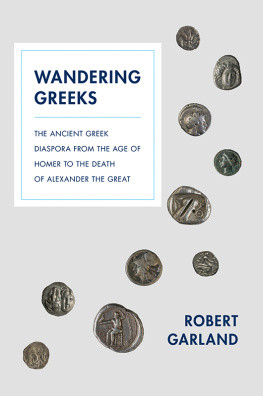
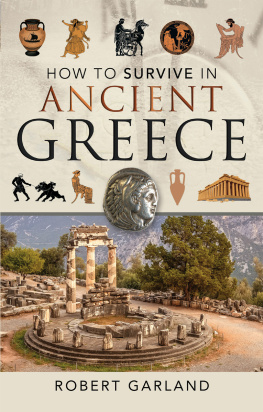


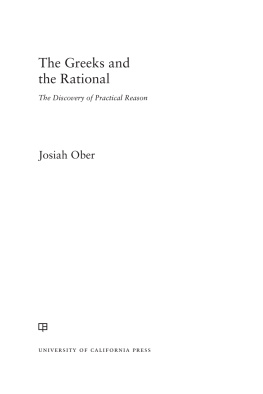
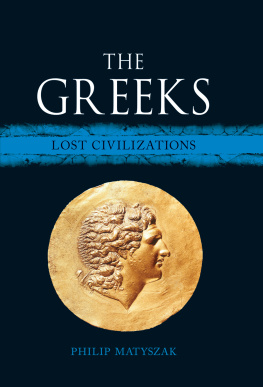

![Michael Lovano - The World of Ancient Greece: A Daily Life Encyclopedia [2 Volumes]](/uploads/posts/book/268736/thumbs/michael-lovano-the-world-of-ancient-greece-a.jpg)

